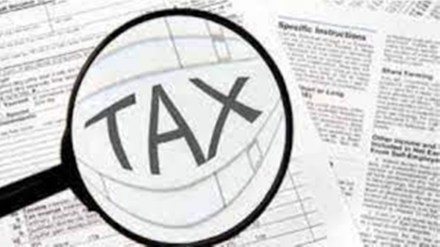By Nishant Thakkar
People living in India are getting more interested to invest in foreign assets (FA) as a result of globalisation, particularly now that there are digital investment platforms. Investing in foreign assets can provide diversification, but it comes with income tax implications. Here are some of the income tax rules on outbound investments by residents in India.
Reporting or disclosure
Investment in an FA requires disclosure of the asset and income therefrom in the Income Tax Return (ITR). Failure to make necessary disclosures can invite penalty and prosecution.
Implications on purchasing
When a resident purchases/receives a foreign asset either for no consideration or on payment of consideration lower than the fair market value (FMV) of such asset, the FMV or the difference between the consideration and the FMV can be taxed as income (except under certain stipulated circumstances).
If the foreign asset is purchased from a person in whose hands the income from transfer of such FA is taxable in India, there would arise obligations to deduct tax at source from the consideration payable to such person.
Income-tax implications on income earned from foreign assets
Any income that is earned (whether received or not) on/from an FA must, ordinarily, be offered to tax in India, unless specifically exempted under the Income-tax Act, 1961 (Act) or under any Double Tax Avoidance Agreement (DTAA) between India and the country in which such FA is situated.
The Act provides for grant of credit (as per rules) of any tax correctly paid in the foreign country against the tax payable in India on such income. Taxability of income varies based on its nature as the income could be revenue or capital in nature.
Revenue income such as interest, dividend, royalty will be taxed under the appropriate heads of income, and the rules contained under such head will determine the expenses that are allowable against the income earned.
Income from transfer of an FA when held on capital account (such as stocks, mutual funds, real estate, or any other capital asset) would be taxable under the head capital gains.
The rates of tax differ based on the period of holding – an asset is short-term or long-term. Typically, if an asset is held for over 24 months, it would be regarded as a long-term asset. The tax rate on gains from transfer of a short-term capital asset (STCA) are higher than that on a long-term capital asset (LTCA). Further gains on transfer of LTCA enjoy the benefit of indexation (which essentially factors in the effect of inflation), which is not available for transfer of STCA.
Carry forward loss on transfer of foreign assets
Typically, loss on transfer of STCA can be set off against gains from transfer of STCA and LTCA, whereas loss from transfer of LTCA can be set off only against gains from LTCA. Losses can be carried forward the remaining loss for 8 years.
Reinvestment exemptions
Gains from transfer of LTCA may also be eligible to exemption based on reinvesting in certain class of assets on satisfaction of stipulated conditions, for example reinvesting gains in a residential house.
Virtual digital assets
Recently the law has been amended to introduce virtual digital asset (VDA) as a different class of asset. The definition essentially covers all kinds of crypto assets including cryptocurrencies, NFTs, tokens etc. If the FA is a VDA, the tax rules change significantly. In other words, gains from transfer of all VDAs are taxable at a flat rate of 30% (plus surcharge and cess and without any deduction in respect of any expenditure (other than cost of acquisition)). The person paying is required to deduct 1% tax on acquisition.
Understanding the income tax rules on overseas investment is crucial to ensure compliance with the tax laws. It is recommended to seek advice of a tax expert before investing in FAs to avoid any tax-related issues.
(Author is Partner, Lumiere Law Partners)
